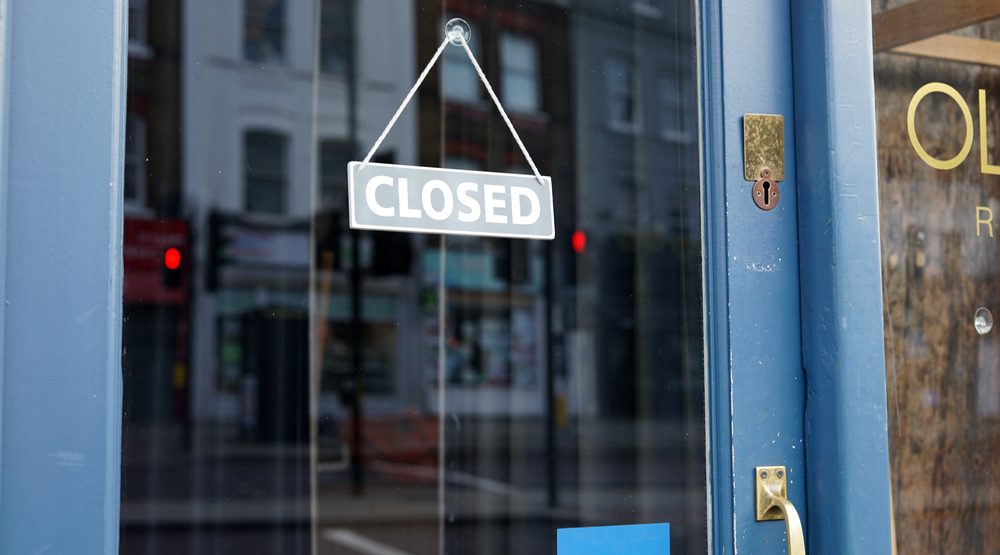Business interruption insurance disputes arising from the Covid-19 pandemic have dominated the Commercial Court in England and Wales since 2020. The ongoing series of test cases, commencing with the Financial Conduct Authority’s test case in 2020, have examined a variety of issues and policy wordings.
In this article James Breese, partner in our Policyholder Disputes team, briefly reflects on the key decisions and developments arising in 2024 and looks at what is ahead for 2025.
Various Eateries v Allianz
In January 2024, the Court of Appeal handed down judgment in Various Eateries. This was the final case of three “Marsh Resilience” matters (involving similar policy wordings) that were case managed together to preliminary issue trials before Mr Justice Butcher in 2022. The other two, Stonegate v MS Amlin & Ors and Greggs v Zurich Insurance Plc, settled shortly before their respective appeals were due to be heard.
The Court of Appeal rejected the appeals and cross-appeals in Various Eateries, leaving the first instance decision undisturbed.
The decision represented a success for Marsh Resilience policyholders insofar as insurers failed with their argument that only a single sub-limit of indemnity would be available under the “occurrence” based aggregation clause in the policy. Conversely, the decision represented a success for insurers insofar as this policy construction would not respond to provide a sub-limit of indemnity per insured premises but rather per materially -different government decision.
Following the judgment in Various Eateries, several Premier League football clubs that pursued Covid-19 claims under their respective Marsh Resilience policies (CL-2022-000248) have settled their litigation. Of the 20 claimants that commenced proceedings in May 2022, it appears that only Arsenal and Liverpool football clubs have not settled.
Liberty Mutual Test Cases
Later, in January 2024, Mr Justice Jacobs handed down judgment following a cohort of cases (Gatwick Investment and various others) concerning Liberty Mutual’s proprietary Prevention of Access (Non-Damage) cover (POAND). The key issues were:
- Whether the Supreme Court’s ruling on causation in the FCA Test Case can apply to non-damage denial of access wordings as it did disease wordings.
- Whether the UK government is a “statutory authority” within the meaning of the cover and whether the POAND extension can respond to cover Covid-19 losses.
- Whether limits of indemnity apply per insured entity.
- Whether the limits of indemnity apply per premises.
- Whether insurers are entitled to take the benefit of furlough payments received by policyholders.
The court found in favour of policyholders in respect of issues 1 to 3. The decision on issues 4 and 5 favoured insurers, save for Bath Racecourse in respect of issue 4.
Notably, in relation to issue 5, Mr Justice Jacobs merely followed the first instance judgment in Stonegate on furlough. The court granted Stonegate permission to appeal that decision, but the claimant settled shortly before the appeal was due to be heard. Mr. Justice Jacobs granted permission to Bath Racecourse.
Bellini (N/E) Ltd v Brit UW Limited
The Court of Appeal was asked to examine another Covid-19 insurance dispute and handed down judgment in Bellini in May 2024.
Bellini pursued a claim under its “Murder, suicide or disease” extension, which, on its face, provided cover for business interruption losses arising from infectious disease.
The Court of Appeal disagreed. It found that there was no such cover because the policy wording required there to be “physical loss or damage” for it to respond. It was common ground that Covid-19 did not cause physical loss or damage.
The decision in Bellini might, on one view, be surprising given that the policyholder might reasonably have contemplated that by purchasing the Murder, suicide or disease cover, it was covered for disease. It is not obvious how any disease could cause physical loss or damage. However, it may be that the Court of Appeal felt compelled to reach the decision it did in this case based on the specific policy construction and arguments in relation to it.
“At the Premises” Test Case
The Court of Appeal handed down judgment in September 2024 following the insurers’ appeal in ExCeL. ExCeL primarily concerned the application of the Supreme Court’s judgment on causation to “at the premises” disease wordings, which were not within the scope of the FCA Test Case.
The Court of Appeal dismissed all the appeals brought by insurers in short order. The decision paves the way for thousands more policyholders to recover some of the losses caused by Covid-19. The Court of Appeal refused permission for insurers to appeal further to the Supreme Court, and one insurer (Allianz) has now applied for permission directly from the Supreme Court. The Court of Appeal’s decision has now become final as against the three other participating insurers.
IEH v Allianz
The Court of Appeal handed down its latest judgment relating to Covid-19 disputes in October 2024.
IEH lost on the gating issue, which was whether the UK government could be construed as a “policing authority” within the meaning of the policy. Following the first instance decision of Mr Justice Jacobs, the Court of Appeal held it could not. The decision may not be entirely surprising, but there are some interesting takeaways for policyholders with comparable wordings where they may respond to action taken by a body other than only a policing authority:
- A case of Covid-19 within the radius of the insured premises can be regarded as an “incident”.
- For there to be cover, the incident must occur within the specific radius.
- Supporting the decision in Corbin & King v AXA, the “any one claim” wording in IEH’s policy provided a separate sub-limit of indemnity (should the policy have been found to respond) for each separate claim, and the separate closure of each of IEH’s insured premises was a separate claim.
- The phrase “any one claim in the aggregate” did not impose an aggregate limit.
Looking ahead
Covid-19 related litigation will quickly resurface in 2025 with the hearing of various appeals in January 2025.
First, in the third week of January 2025, the Court of Appeal will hear insurers’ appeals of causation and limits in the next instalment of the LMIE Test Cases. These appeals are the next significant milestone in the Covid-19 chronology as the Court of Appeal will be asked to determine these key issues:
- Whether the Supreme Court’s judgment on causation applies to POAND/Non-Damage Denial of Access wordings as it does disease and at the premises wordings.
- Whether a composite policy of insurance entitles multiple insured entities to separate limits of indemnity.
It is noteworthy that some policyholders in the LMIE Test Cases have been able to settle their cases with insurers, notwithstanding insurers’ ongoing appeals of the issues above.
Secondly, in the final week of January 2025, the Court of Appeal will be asked to determine whether insurers should be entitled to the benefit of furlough payments received by policyholders. They currently are pursuant to the judgment in Stonegate, which was not appealed.
Beyond January, we wait to see whether the Supreme Court will grant Allianz permission to appeal the Court of Appeal’s judgment in ExCeL.
Comment
The appeals in January 2025 should be significant diary entries for policyholders with outstanding or dormant Covid-19 business interruption insurance claims. The outcomes may provide that:
(a) groups of insureds are entitled to multiple separate limits of indemnity per insured entity, and
(b) insurers are not entitled to deduct from any indemnity the value of the furlough payments that policyholders received.
In either scenario, the potential exposure to the market could be substantial in the context of Covid-19 disputes and beyond and may require insurers to revisit settlements concluded in relation to the majority of claims over the past four years.
The appeals in January 2025 may be the beginning of the end of the Covid-19 chronology but it certainly has more to give. There will be additional litigation in 2025, including possible further appeals of the above issues, a potential appeal to the Supreme Court on the “at the premises” wordings and more litigation on aggregation (albeit in relation to yet untested wordings). Reinsurance disputes also continue to develop in the background.
Policyholders and their advisers would be wise to take stock of developments in the past four years to consider the extent to which the legal position may have changed. While it may have been understandable for claims for indemnity to be denied in 2020 and 2021, that position may no longer be appropriate.
You can find further information regarding our expertise, experience and team on our Policyholder Disputes page.
If you require assistance from our team, please contact us.
Subscribe – In order to receive our news straight to your inbox, subscribe here. Our newsletters are sent no more than once a month.






